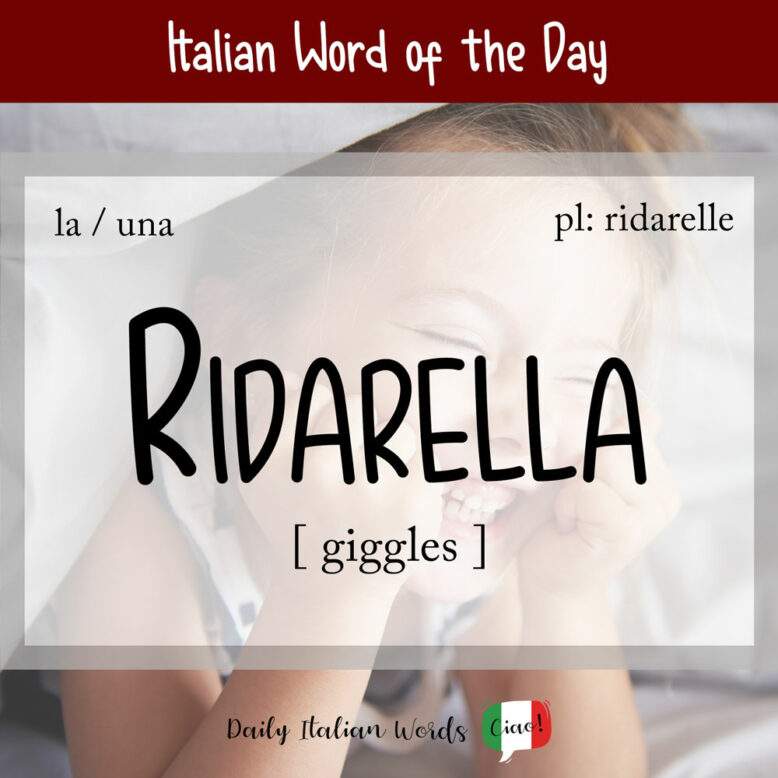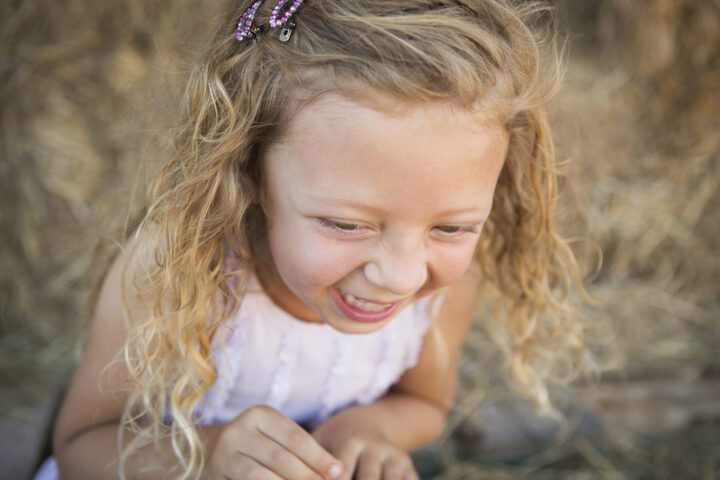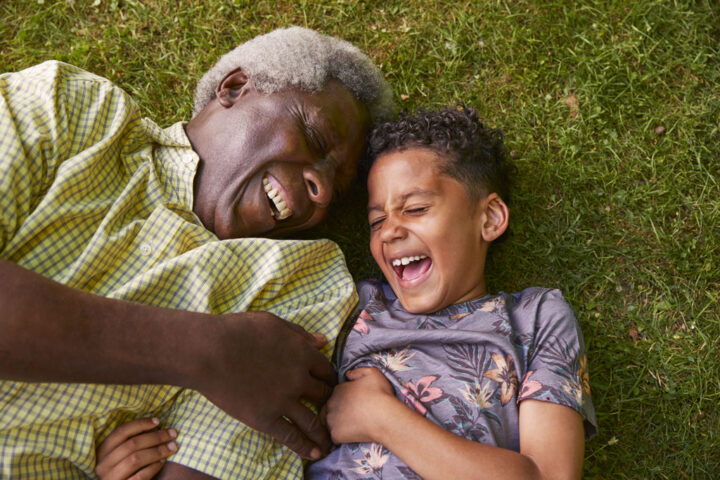At some point in time, we’ve all found ourselves laughing uncontrollably at a funny situation or a hilarious joke. In English, we call this unstoppable laughter the giggles whereas in Italian, it is called la ridarella (feminine). The word comes from the verb ridere meaning to laugh.

To say that you’ve got the giggles in Italian, you can use any of the following expressions:
- avere la ridarella = lit: to have the giggles
- prendersi la ridarella = lit: to get the giggles
- farsi venire la ridarella = lit: the giggles come to you
Ho la ridarella!
Mi è presa la ridarella!
Mi è venuta la ridarella!
I’ve got the giggles!

To give someone the giggles on the other hand is far venire la ridarella a qualcuno.
If, despite living in Italy, you’ve never come across the term ridarella before, it may be because the people in your region use one of two accepted synonyms: riderella or risarella. On top of this, there are also numerous dialectal variations including ridarola, risarola or ridariola. For example, my husband, who comes from the Piemonte region of Italy, is only familiar with the standard ridarella and dialectal ridarola.

Riderella / ridarella and the masculine equivalents ridarello / riderello are also adjectives to describe a person who laughs easily, or a part of their body that express joy or liveliness, such as occhi riderelli (lively eyes) and bocca riderella (lively mouth).
Tu sei proprio un bimbo riderello, lo sai?!
You really are a cheerful boy, you know?!

Heather Broster is a graduate with honours in linguistics from the University of Western Ontario. She is an aspiring polyglot, proficient in English and Italian, as well as Japanese, Welsh, and French to varying degrees of fluency. Originally from Toronto, Heather has resided in various countries, notably Italy for a period of six years. Her primary focus lies in the fields of language acquisition, education, and bilingual instruction.


